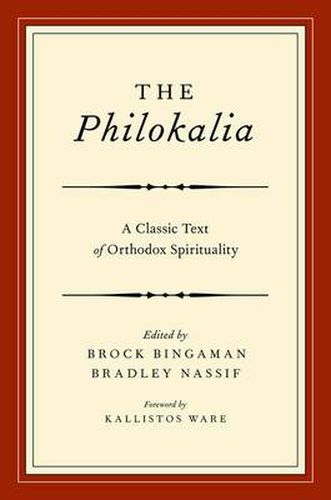Readings Newsletter
Become a Readings Member to make your shopping experience even easier.
Sign in or sign up for free!
You’re not far away from qualifying for FREE standard shipping within Australia
You’ve qualified for FREE standard shipping within Australia
The cart is loading…






The Philokalia (literally love of the beautiful or good ) is, after the Bible, the most influential source of spiritual tradition within the Orthodox Church. First published in Greek in 1782 by St. Nicodemos of the Holy Mountain and St. Macarios of Corinth, the Philokalia includes works by thirty-six influential Orthodox authors from the fourth to fifteenth-centuries such as Maximus the Confessor, Peter of Damascus, Symeon the New Theologian, and Gregory Palamas. Surprisingly, this important collection of theological and spiritual writings has received little scholarly attention. With the growing interest in Orthodox theology, the need for a substantive resource for philokalic studies has become increasingly evident. The purpose of the present volume is to remedy that lack by providing an ecumenical collection of scholarly essays on the Philokalia that will introduce readers to its background, motifs, authors, and relevance for contemporary life and thought.
$9.00 standard shipping within Australia
FREE standard shipping within Australia for orders over $100.00
Express & International shipping calculated at checkout
The Philokalia (literally love of the beautiful or good ) is, after the Bible, the most influential source of spiritual tradition within the Orthodox Church. First published in Greek in 1782 by St. Nicodemos of the Holy Mountain and St. Macarios of Corinth, the Philokalia includes works by thirty-six influential Orthodox authors from the fourth to fifteenth-centuries such as Maximus the Confessor, Peter of Damascus, Symeon the New Theologian, and Gregory Palamas. Surprisingly, this important collection of theological and spiritual writings has received little scholarly attention. With the growing interest in Orthodox theology, the need for a substantive resource for philokalic studies has become increasingly evident. The purpose of the present volume is to remedy that lack by providing an ecumenical collection of scholarly essays on the Philokalia that will introduce readers to its background, motifs, authors, and relevance for contemporary life and thought.